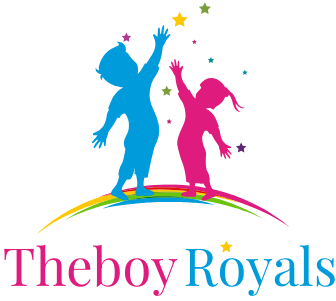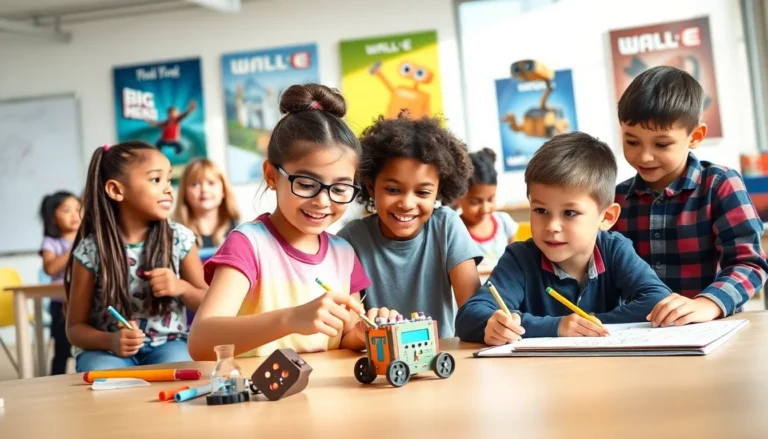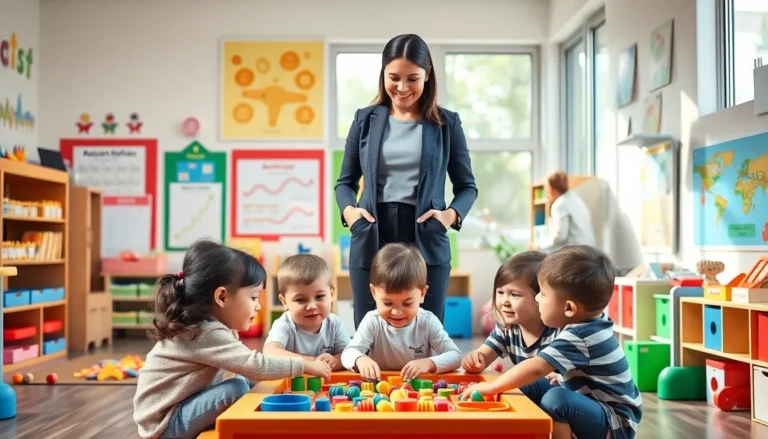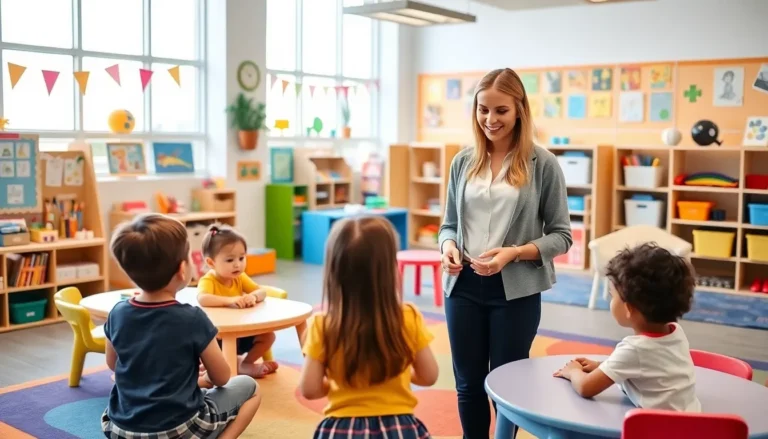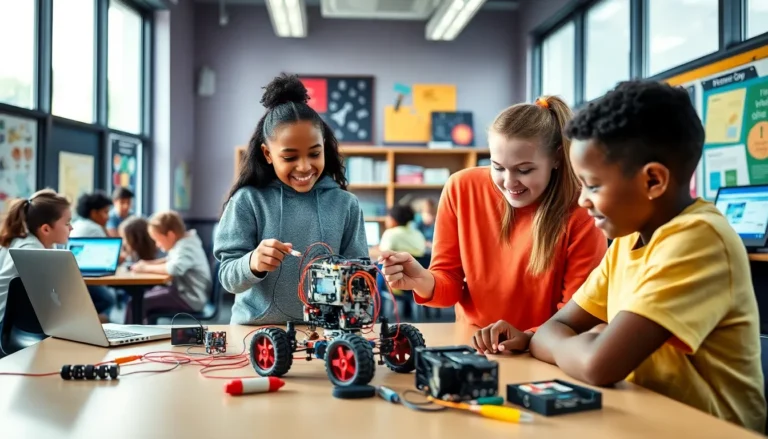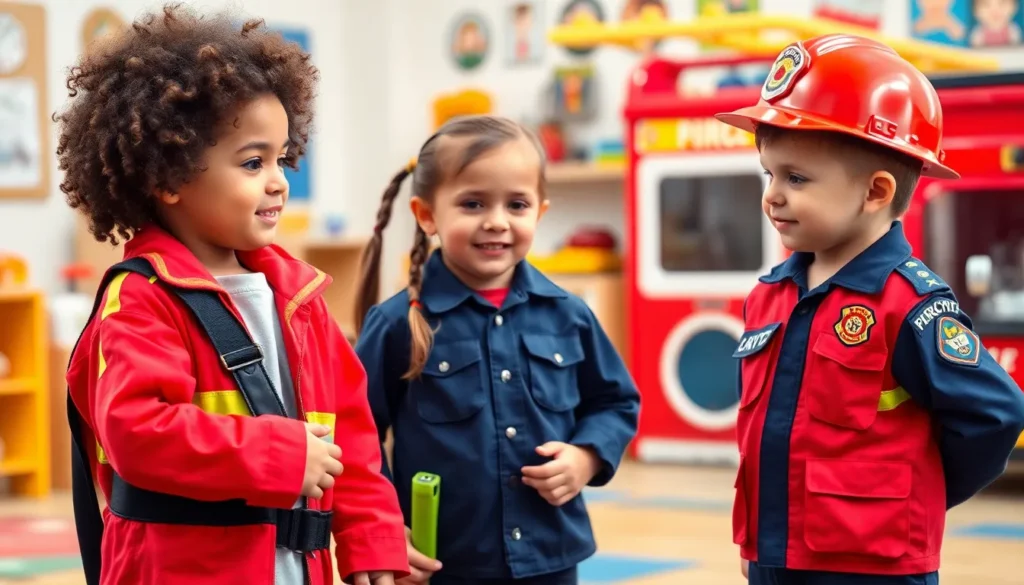Table of Contents
ToggleIn the vibrant world of preschool, community helpers play a vital role in shaping young minds. These dedicated individuals—from firefighters and police officers to doctors and teachers—serve as real-life examples of teamwork and service. By introducing children to the various roles these helpers play, educators can inspire curiosity and respect for the community.
Understanding the importance of community helpers not only enhances children’s knowledge but also fosters a sense of belonging. Through engaging activities and storytelling, preschoolers can connect with these figures, learning valuable lessons about empathy and cooperation. This exploration lays the foundation for a strong sense of community and encourages children to appreciate the contributions of those around them.
Overview of Preschool Community Helpers
Preschool community helpers make a vital impact on young children’s understanding of their surroundings. They include professionals like firefighters, police officers, doctors, teachers, and nurses. Each role showcases essential services that contribute to community welfare.
Engaging with community helpers sparks children’s curiosity. They learn how these helpers perform various tasks that keep communities safe and healthy. For example, firefighters teach children about fire safety and prevention. Police officers instill a sense of security by explaining the importance of law enforcement.
Teachers facilitate hands-on activities like role-playing and storytelling. These methods allow preschoolers to explore real-life scenarios that community helpers experience daily. Through these experiences, children develop empathy and cooperation skills. They gain a sense of belonging as they understand how individual contributions support the community.
Overall, interactions with community helpers create a foundation for children to appreciate and respect different roles. This knowledge not only enriches their learning but also fosters a greater sense of community awareness.
Importance of Community Helpers in Preschool
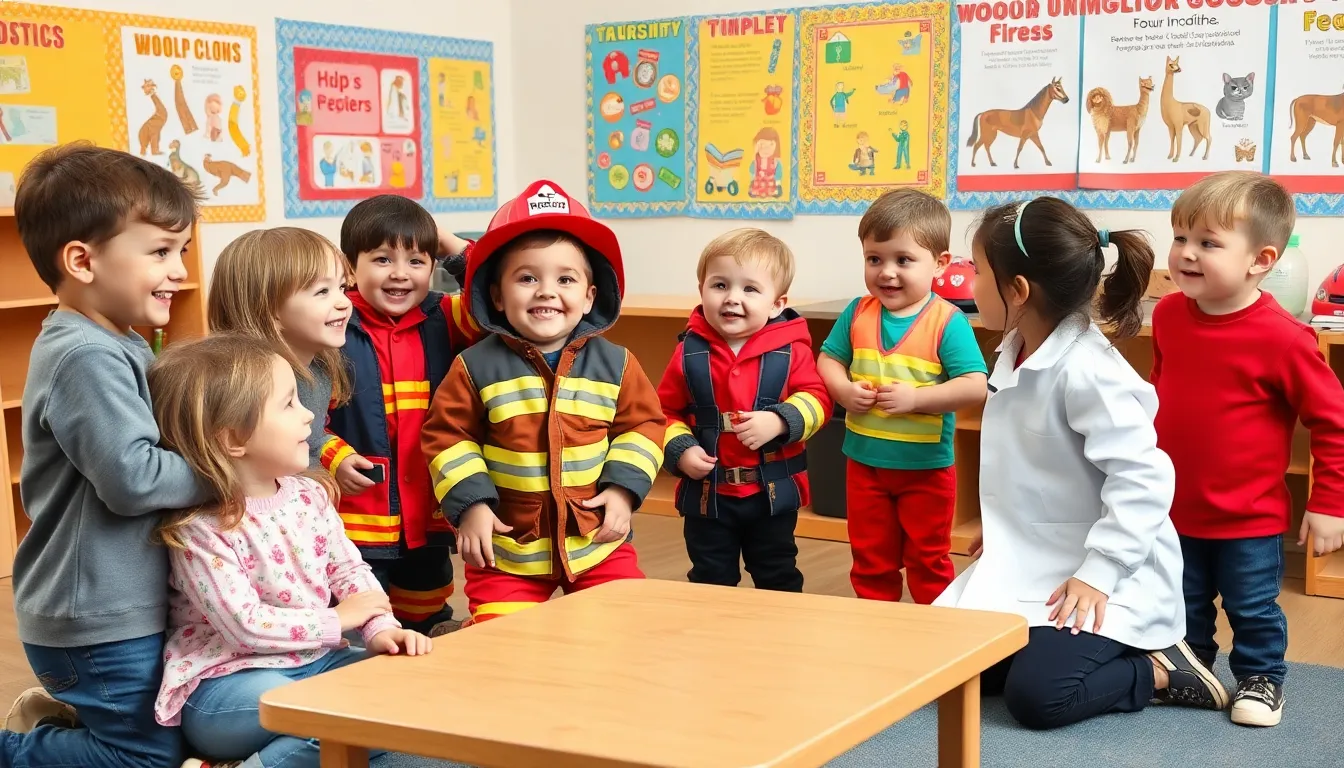
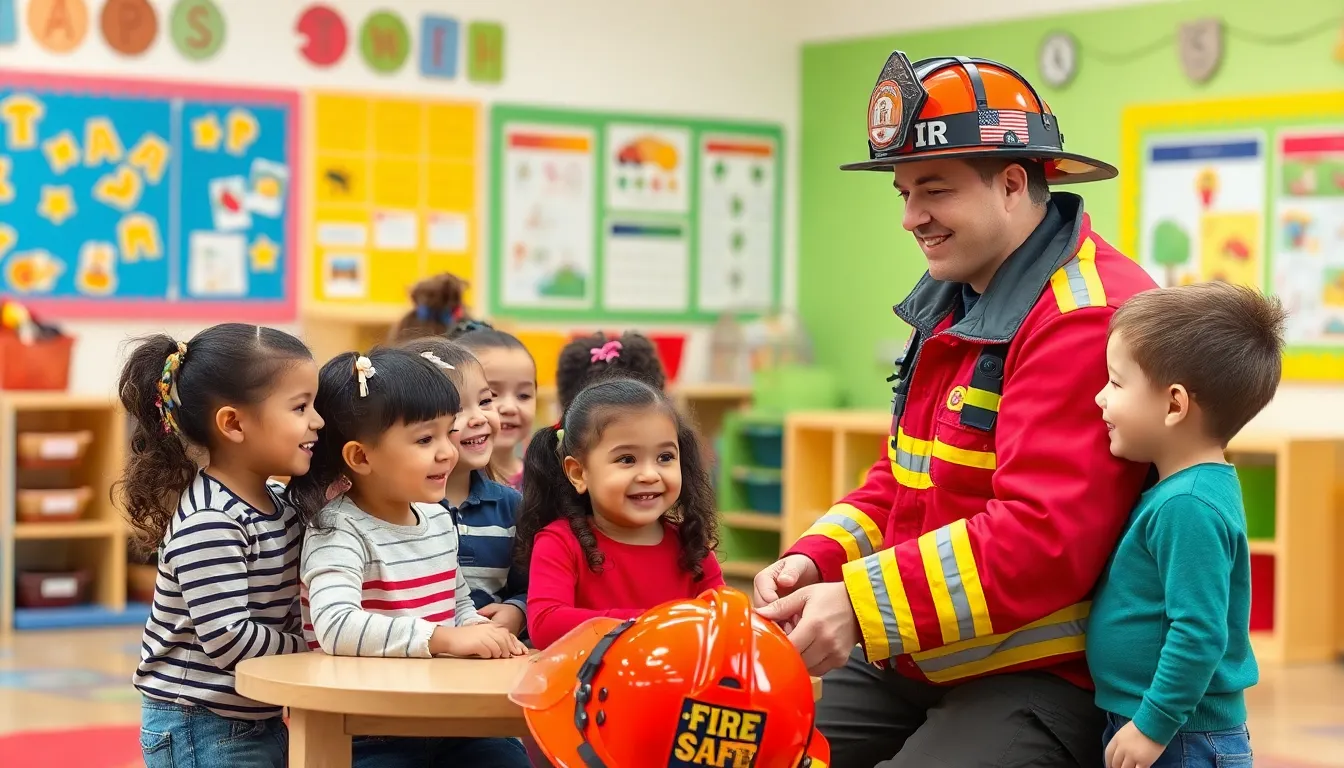
Community helpers play a crucial role in preschool education by fostering a sense of responsibility and community awareness. Their presence enhances children’s understanding of societal functions and cultivates important life skills.
Social Development
Community helpers facilitate social development among preschoolers. They encourage cooperation through group activities, where children learn to engage with others and share responsibilities. When interacting with community helpers, children practice communication skills, develop friendships, and gain confidence in social situations. For example, role-playing as firefighters or doctors helps children recognize the value of teamwork and the significance of their contributions to society.
Cognitive Growth
Community helpers also support cognitive growth in preschoolers. By introducing various professions, children expand their vocabulary and learn new concepts related to each role. Experiential learning activities, such as field trips to fire stations or visits from police officers, provide hands-on experiences that reinforce understanding. Additionally, discussions about the roles of different helpers cultivate critical thinking as children ask questions and explore how these professions impact their lives. Through these interactions, preschoolers gain insights into problem-solving and analytical skills.
Types of Preschool Community Helpers
Community helpers fall into various categories, illustrating the diverse roles individuals play in society. Understanding these roles enriches preschoolers’ knowledge and appreciation of their community.
First Responders
First responders include firefighters, police officers, and paramedics. Firefighters protect the community through fire prevention and emergency response. They educate children about fire safety and emergency procedures. Police officers maintain law and order, teaching kids about safety and the importance of rules. Paramedics provide immediate medical assistance, explaining how to call for help during emergencies. These professionals instill feelings of safety and trust in preschoolers.
Healthcare Professionals
Healthcare professionals encompass doctors, nurses, and dentists. Doctors assess and treat illnesses, guiding children in understanding health and wellness. Nurses support patient care, teaching preschoolers the value of compassion and assistance. Dentists promote oral hygiene, highlighting how to maintain healthy teeth. Interactions with healthcare professionals help children grasp the significance of health and caring for oneself and others.
Educators
Educators refer to teachers, teaching assistants, and childcare workers. Teachers shape children’s knowledge by creating engaging learning environments. They foster curiosity in various subjects, from literacy to math. Teaching assistants offer additional support, enabling personalized learning experiences. Childcare workers provide foundational skills, ensuring children’s social and emotional needs are met. Educators encourage a love for learning, vital for children’s development.
Service Workers
Service workers include postal workers, garbage collectors, and volunteers. Postal workers ensure mail delivery, teaching kids about communication and timeliness. Garbage collectors maintain cleanliness, highlighting the importance of waste management. Volunteers contribute to community projects, showcasing altruism and community service. These roles teach preschoolers the significance of cooperation and the impact every individual has on society.
Engaging Activities for Preschoolers
Engaging activities for preschoolers allow them to explore and understand the roles of community helpers effectively. These activities promote learning through play and interaction, enhancing social and cognitive development.
Role-Playing
Role-playing offers preschoolers a hands-on experience of various community helper roles. Children can dress up as firefighters, police officers, doctors, or teachers, fostering an understanding of these professions. Through this imaginative play, they learn about teamwork and problem-solving. For example, setting up a mock fire station encourages children to practice safety protocols while developing empathy towards first responders. Group role-playing scenarios facilitate collaboration, allowing children to communicate their ideas and respect each other’s contributions, strengthening social bonds.
Storytime Sessions
Storytime sessions introduce preschoolers to narratives featuring community helpers, enriching their vocabulary and comprehension skills. Books highlighting professions like nursing, teaching, and firefighting capture children’s attention, instilling respect and admiration for these roles. Interactive storytelling encourages participation, allowing children to express their thoughts and ask questions. Educators can enhance these sessions with discussions about the moral lessons behind the stories, fostering critical thinking. Utilizing visuals and props during storytime reinforces concepts, making learning about community helpers engaging and memorable.
